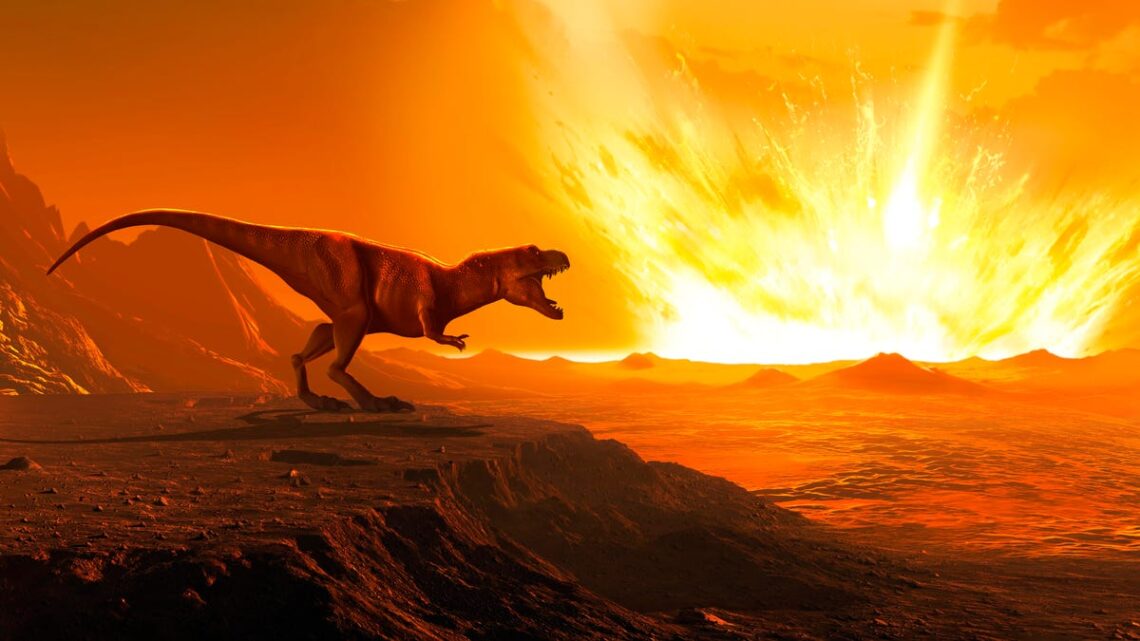Asteroids, volcanic eruptions and poisonous plant species: the extinction of the dinosaurs has been a hotly debated topic for decades. But researchers have found hard evidence of an asteroid impact that had a massive effect on the Earth’s climate along with asteroid-specific minerals like iridium at the crater in Chicxulub, Mexico, all but proving the asteroid theory.
And now scientists have figured out where the asteroid likely came from, and it wasn’t from anywhere nearby. Research headed by Mario Fischer-Gödde at the University of Cologne in Germany says the asteroid came from beyond Jupiter, well into the outer portion of our solar system.
The research paper, published Thursday in the journal Science, identified it as a C-type asteroid. Known as a carbonaceous meteor, these most commonly come from the outer solar system. C-type meteors are exceptionally old, and their makeups can help researchers learn more about the early history of our solar system.
Learning where the meteorite came from
To figure this out, scientists had to go through a number of steps. When the meteorite smashed into Earth, it pulverized rock and launched it into the skies. This giant dust cloud — which included material from both Earth and the meteorite — lowered the temperature of Earth and wiped out most of the species in existence. That dust eventually settled, where it would become a layer of rock that scientists could dig up tens of millions of years later.
Geologists designate this very thin layer as the K-Pg layer, which describes the time when the Cretaceous period ends and the Paleogene period begins. It was around this time, 66 million years ago, when the asteroid was thought to hit.
Researchers dug up samples from the K-Pg layer and found ruthenium, an element that is rarely found on Earth but is plentiful on carbonaceous meteorites. The isotopes, or atoms, found in the ruthenium matched those found in ruthenium in other carbonaceous meteorites, proving that it came from…
Read the full article here






